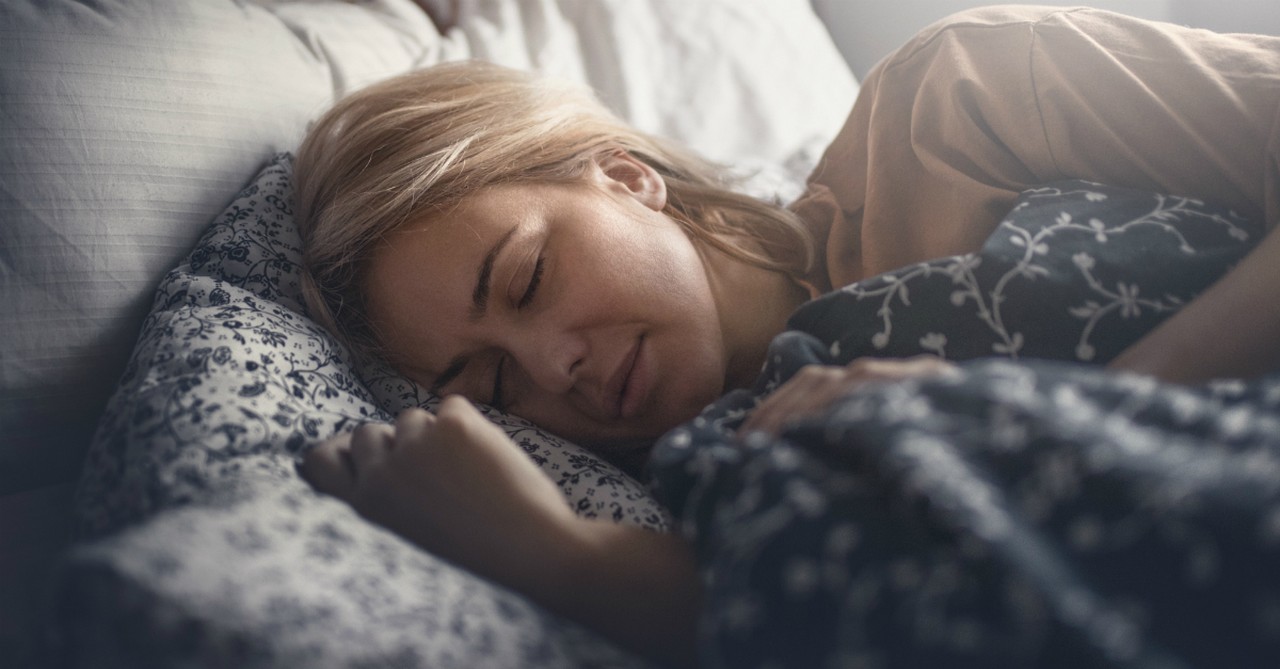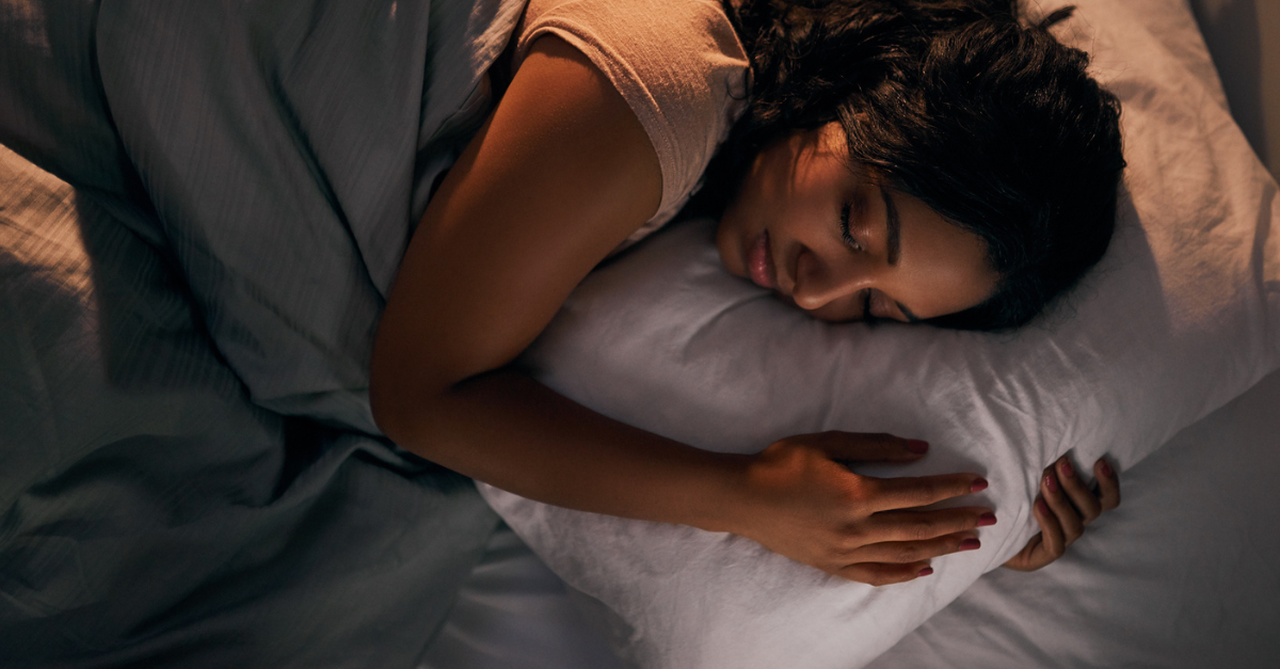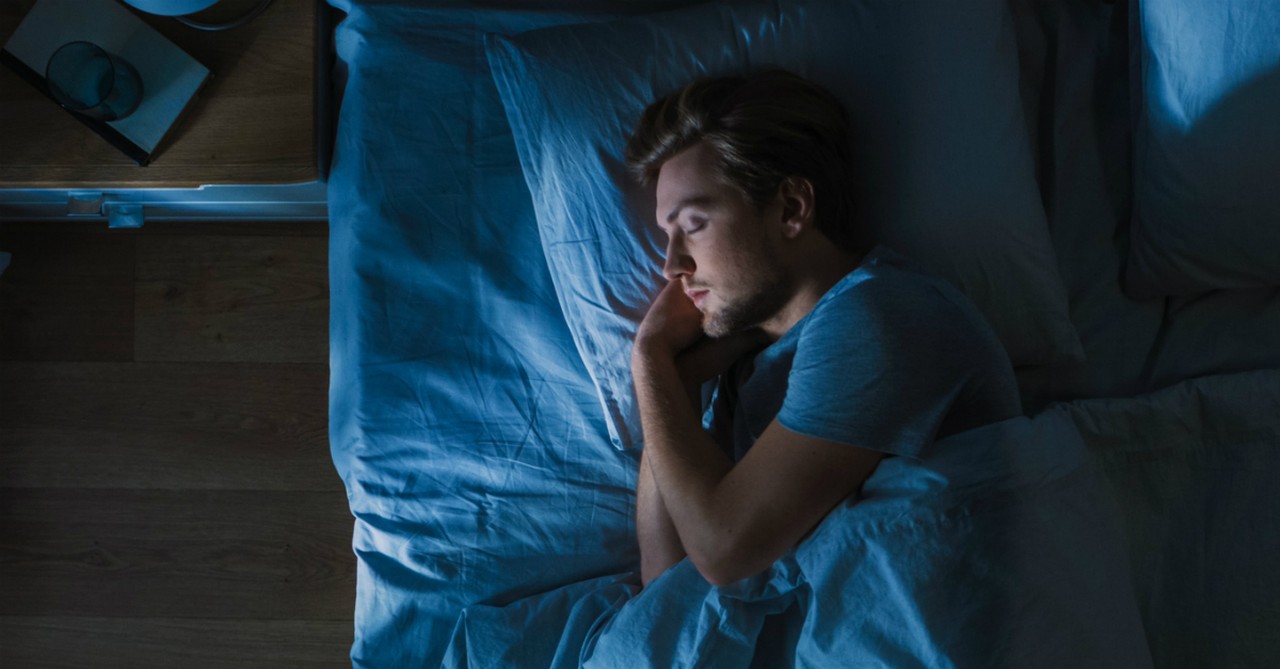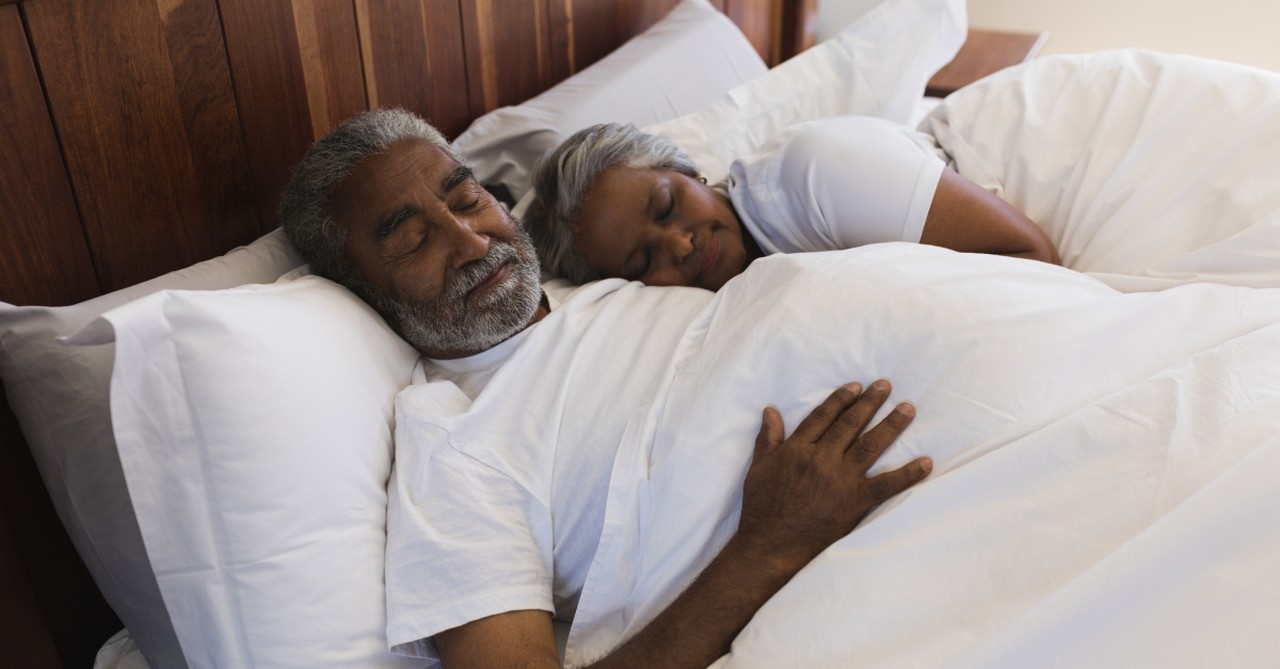7 Ways to Promote Healthy Sleep Today

When my daughter was a teen, she experienced anxiety. Over time, her sleep suffered, and her anxiety worsened. When we sought help from a professional, he immediately asked about sleep. He drew a diagram with a triangle and labeled each point—body, mind, and spirit. He said all three are connected and need to be nurtured. Then he drew a circle around the triangle and wrote one word—sleep. “Sleep impacts all three parts of our being,” he said. “Poor sleep can throw us way out of balance.”
Insomnia is the prolonged inability to get enough sleep. Some people have difficulty falling asleep, while others wake up in the middle of the night and cannot resume sleep. Often, people experience both problems. According to the Centers for Disease Control and Prevention, nearly fifteen percent of adults cannot fall asleep, and eighteen percent cannot stay asleep for the normal length of time. According to the CDC, Many are plagued by both issues, and women have insomnia more often than men.
People with insomnia do not complete the normal cycles of sleep that fully rest the body, mind, and spirit. They wake up feeling tired. Energy runs low throughout the day and reduces productivity. Lack of sleep affects mood. Relationships suffer. Eventually, physical health deteriorates. The systemic effect of insomnia can be devastating. Most likely, you or someone you care about experiences insomnia. Fortunately, if we discipline ourselves, we can develop seven ways to promote better sleep.
Photo credit: ©GettyImages/Aja Koska
1. Follow good daytime habits.

1. Follow good daytime habits.
SLIDE 1 OF 5
Healthy sleep begins long before your head hits the pillow. Choices during the day affect the quality of sleep at night.
Limit caffeine quantities. According to the Food and Drug Administration, most people in generally good health may consume 300 to 400 milligrams of caffeine during the day without adverse side effects. If you struggle with falling or staying asleep, however, you should cut back or eliminate caffeine from your diet. Also, the stimulant effect stays in your system for about six hours, so you should cut off products containing caffeine sometime in the afternoon, depending on your bedtime. Be aware that products labeled “decaf” often have caffeine, albeit in a lower quantity.
Regular aerobic exercise improves sleep. Researchers at Johns Hopkins Medicine cannot pinpoint the exact reason physical activity during the day enhances sleep the same evening, but they note a strong connection. Exercise temporarily increases the body’s temperature and floods it with endorphins, so experts agree the most benefit comes when exercise occurs more than two hours before bedtime.
Stay well hydrated during the day, but limit fluids during the hour or two before sleep. The Mayo Clinic recommends fifteen cups of fluids per day for men and eleven cups for women.
Avoid naps during the waking hours. If you must nap, set a timer for thirty-minutes so it won’t contribute to insomnia later. Also, choose a time earlier in the day rather than close to bedtime.
Eat healthy foods. Not surprisingly, nutrition and sleep are interconnected. Doctors at Cleveland Clinic cite studies that show a diet of complex carbohydrates such as whole grains and vegetables, along with lean meats, healthy fats, and limited sugar, promotes better sleep. If you snack at bedtime, they suggest something like fruit, cheese, or whole-grain crackers in small quantities.
2. Establish a bedtime routine to wind down.

2. Establish a bedtime routine to wind down.
SLIDE 2 OF 5
Habits train people to automatically do certain tasks. When you establish a bedtime routine and repeat it over time, your body and brain learn to shut down in preparation for the night of sleep. If you follow the same process to prepare for sleep every evening, you improve your chance for healthy sleep.
Below is a list of various possibilities to include in your sleep preparation. Give yourself at least a half hour before sleep to follow the routine and wind down.
Plan a regular bedtime and follow it. Set an alarm so anxiety about oversleeping won’t keep you up in the night.
Create an inviting atmosphere conducive to sleep. Consider the temperature of the bedroom, the comfort of your sleepwear, and lighting. Turn off devices while you prepare for rest. Avoid bringing your work into the bedroom, and sleep in the same place every night.
- Settle your pets so they won’t interrupt your slumber.
- Check the locks on the doors.
- Play soft music.
- Drink noncaffeinated herbal tea or warm milk.
- Take a warm bath with Epsom salts.
- Read a relaxing book for a few minutes.
- Meditate on one or two Bible verses.
- Journal about the day or make a list of worries uppermost in your mind.
- Pray over your concerns and trust God for your needs.
Whatever routine you establish for your bedtime, try to follow each step around the same time every evening to prepare yourself for a restful sleep.
READ: 5 Helpful Steps to a Peaceful Bedtime Routine by Annie Yorty
Photo credit: ©GettyImages/Motortion
3. Get an adequate quantity of sleep.

3. Get an adequate quantity of sleep.
SLIDE 3 OF 5
The amount of sleep we need depends upon our age and other factors including health conditions and genetics. Doctors at the Mayo Clinic agree that adults should dedicate seven to eight hours for sleep per night for optimal health. This number may vary depending upon interruptions or the amount of time spent in each stage of sleep.
4. Reduce noise during sleep.
How is it that some can sleep through a bomb going off while others wake at the sound of a pin dropping? Though we all have idiosyncrasies about noise, a quiet environment generally gives a more restful sleep. When sleep is interrupted repeatedly by sounds, our bodies will not spend time in every stage of sleep necessary for true rest.
For those who struggle with heightened sensitivity to nighttime sounds, doctors at WebMD discuss two types of noise and their positive effects on sleep.
White noise contains all frequencies on the spectrum to create a static sound. Its pitch can vary. Examples include a vacuum or fan.
Pink noise is a constant background sound that uses only lower frequencies. Examples include steady rain or ocean waves.
Both types of noise mask other sounds. The brain learns to focus on the steady sound of the ambient noise and tune out other, more disruptive noises. You can purchase a sound machine or use an app to add one of these types of noises to your environment.
Photo credit: ©Getty Images/Adene Sanchez
5. Turn off all sources of light.

5. Turn off all sources of light.
SLIDE 4 OF 5
Our bodies need daily rest. God created a world with cycles of light and darkness. He designed your body to cooperate with these cycles. During darkness, your body naturally releases melatonin, a hormone that causes sleepiness. The cycle of light and darkness creates a circadian rhythm of sleep and waking.
All types of light can interfere with sleep. To wake up feeling refreshed, turn off every light at night, including night lights and the glow from electronics. If you have outdoor lighting that streams into your room through a window, turn it off or invest in room-darkening shades.
The Cleveland Clinic reports blue light, in particular, has a stimulating effect on the brain. It increases alertness and decreases sleep quality. All device screens emit blue light and should be limited to one or two hours before bedtime to allow the brain to settle for sleep.
6. Address health concerns.
Some health conditions interfere with restful sleep. Many episodes are short-lived and allow you to go back to normal sleep patterns. However, if a medical concern persists, you should ask a doctor to help find a solution. WebMD reports some diagnoses that commonly disrupt sleep include:
- Sleep apnea—an obstruction of the airway at night, often indicated by excessive snoring
- Chronic pain
- Reflux or heartburn
- Menopause
- Dementia
- Anxiety or mental illness
Sometimes, poor sleep indicates an undiagnosed medical condition such as thyroid disease or diabetes. Additionally, medications may interfere with sleep. Read the labels carefully to know the best time of day to take them. For any of these concerns, be sure to speak with your doctor.
Photo credit: ©GettyImages/gorodenkoff
7. Choose a comfortable sleep position.

7. Choose a comfortable sleep position.
SLIDE 5 OF 5
Back, side, or stomach—what is the best position for a restful night of sleep? Unfortunately, there’s not one answer that’s right for everyone.
Back
Sleeping on your back helps with alignment and takes pressure off joints to alleviate pain. But if you have sleep apnea, your airway may at times partially close during the night in this position. If you have reflux, sleeping on your back can also exacerbate the condition.
Stomach
Lying on your stomach reduces apnea, but people often complain of neck and back stiffness in the morning.
Side
Some say side sleeping aids in digestion. Doctors at the Mayo Clinic suggest side sleeping for patients with back pain, advising them to place a small pillow between their knees.
Choose the sleeping position best suited to your needs. Track your sleep quality and quantity for a week or so and see how it works. Then try to settle in that way every evening.
Your Source of Help
Because insomnia affects every facet of our lives, we easily become discouraged. Lack of sleep affects our thinking and mood until we spiral down into hopelessness. At these times, we need to remind ourselves of the One who helps us.
"My help comes from the Lord, who made heaven and earth!" (Psalm 121:2 NLT)
Not only did God make the heaven and earth, He made you! Stay close to Him. Pray about your needs. Ask Him to help you choose and apply some of these seven ways to promote healthy sleep. Or maybe He will lead you in another direction based on your specific needs. Either way, remember He loves you more than you can imagine, and He will help you lie down in peace.
Photo credit: ©GettyImages/Wavebreakmedia

Related Resource: Strengthening Your Marriage While Raising a Child with Disabilities
In this episode of Empowering Homeschool Conversations, your host Annie Yorty and her special guests dive into the unique challenges and beautiful complexities of maintaining a strong, loving partnership while navigating the demands of special needs parenting. Our expert guests bring a wealth of knowledge and personal experience to the table, offering invaluable insights and practical strategies for fostering resilience, connection, and joy in your marriage. Whether you're homeschooling parents seeking support, or simply looking for ways to strengthen your relationship amidst life's challenges, this conversation promises to provide the inspiration and tools you need to thrive together. Listen now!
Originally published October 06, 2023.









